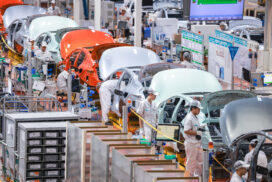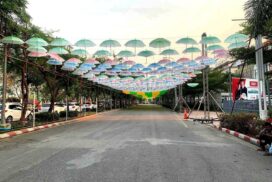Electricity is the cornerstone of socioeconomic development, fostering various businesses and improving the standard of living. It plays a vital role across all sectors, enhancing living standards and facilitating industrial growth, which in turn boosts the production of quality goods for export, thereby bolstering the nation’s income.
As part of the National Electrification Project (NEP), aimed at nationwide coverage, the Department of Rural Development has announced plans to implement single-house solar power systems and small-scale electrification projects in approximately 900 villages during the 2024-25 financial year.
The government has allocated K20 billion annually for rural electrification projects. These projects are currently underway and funded by government allocations and contributions from the respective villages, ensuring their successful completion.
The Ministry of Electric Power aims to electrify off-grid areas located more than 10 miles away from national grids within 10 to 14 years. That will be achieved through single-house solar power systems and small-scale electrification projects in the coming financial years.
Initiated by the Department of Rural Development under the Ministry of Cooperatives and Rural Development in the 2016-17 financial year, these electrification systems have already brought electricity to 418,363 houses in 9,163 villages through single-house solar power systems and to 38,913 houses in 162 villages through small-scale electrification systems within six years, spanning from 2016-17 FY to 2021-22 FY.
During the 2022-23 financial year, a total of 43,728 houses in 919 villages have the opportunity to benefit from electricity through single-house solar power systems, along with 2,835 houses in 14 villages through small-scale electrification systems. These rural electrification projects typically span two years to ensure the completion of all project components.
On the other hand, people need to use electricity in a systematic manner. If not necessary, all bulbs and lighting should be switched off. They have to be swift when lighting is necessary. All people need to avoid switching on lighting in unnecessary areas and unnecessary time. If so, electricity can be fed at full capacity to the relevant regions in turn. Hence, people need to consume electricity efficiently to reduce the expense of generating electricity and charges of electric bills.
Electrification is crucial for the overall development of both rural and urban areas. It signifies the modernization of a nation and its people, enabling the transition from underdeveloped to developing status. As such, encouraging electrification is vital for the advancement and prosperity of the country.
Encourage electrification for rural and urban development
- May 02, 2024
- 58















